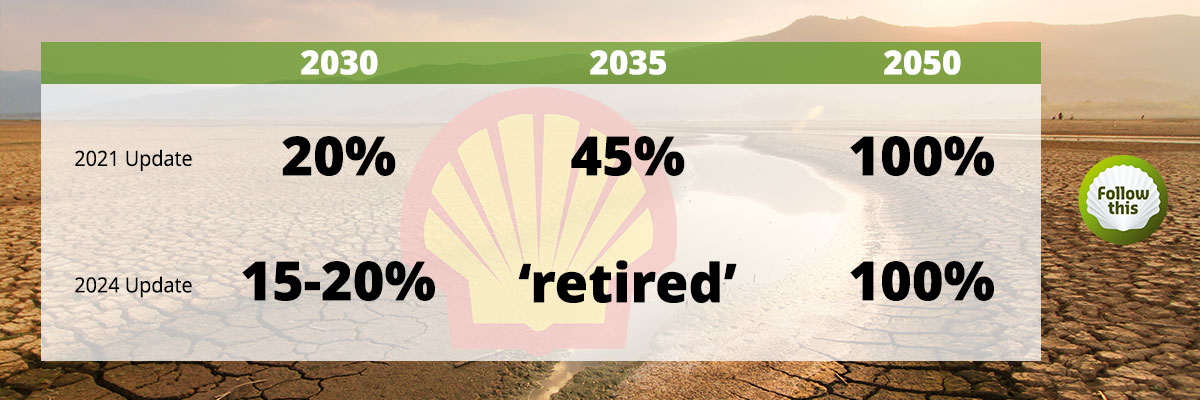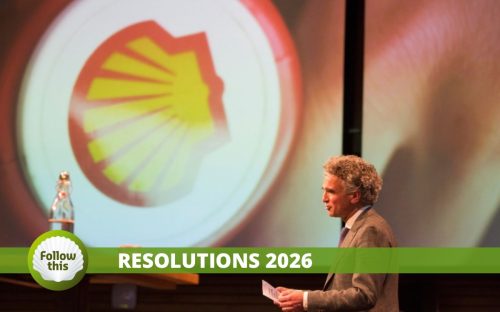PRESS RELEASE
Oil major sheds its 2030 and 2035 emission reduction ambitions
Shell abandons its climate targets, the oil major announces in its strategy update today; the company lowers its emission reduction targets from 20% to 15-20% by 2030 and scraps its emission reduction targets of 45% by 2035.

“With this backtrack, Shell bets on the failure of the Paris Climate Agreement which requires almost halving emissions this decade,” responds Mark van Baal, founder of activist shareholder group Follow This. “Only Shell’s shareholders can change the board’s mind by voting for our climate resolution at the shareholders’ meeting in May.”
“This backtracking removes any doubt about Shell’s intentions: the company wants to stay in fossil fuels as long as possible. The board not only endangers the global economy by exacerbating the climate crisis, but also puts the company’s future at risk through policy interventions, disruptive innovation, stranded assets, and accountability for the costs of climate change.”
Responsible shareholders hold the key
“Short-term shareholders might reward Shell with an increase in share price today, but long-term responsible shareholders want Shell to change. They will vote for change at Shell’s next shareholders’ meeting, because they foresee both their assets and the company are in danger in a global economy devastated by climate change.”
“Large shareholders hold the key to tackling the climate crisis with their votes at shareholders’ meetings. Shell will only change if more shareholders vote for change. The climate resolution we co-filed with 27 institutional investors is designed to give Shell a shareholder mandate to drive the energy transition.”
Share valuation gap
“The new CEO seems to be obsessed by the share valuation gap between Shell and Exxon, and thinks he can close the gap by breaking green promises. However, the main reason for the share valuation gap is not the greenwashing of his predecessor, but the cut in dividend by two thirds after a drop in the oil price during the pandemic.”
“After another year with record-breaking global temperatures, backtracking on essential emissions reduction targets clearly shows what Wael Sawan means by a ‘ruthless focus’.”
Comparing metrics
In 2021, Shell set emissions reductions targets based on its Net Carbon Impact (NCI) metric, which compares emissions to a 2016 baseline. The below table provides an overview of how the emissions reductions targets have been revised today.
Full text shareholder resolution 2024
Shareholders support the Company, by an advisory vote, to align its medium-term emissions reduction targets covering the greenhouse gas (GHG) emissions of the use of its energy products (Scope 3) with the goal of the Paris Climate Agreement: to limit global warming to well below 2°C above pre-industrial levels and to pursue efforts to limit the temperature increase to 1.5°C.
The strategy for achieving these targets is entirely up to the board.
You have our support.
More info
- Shell Strategy Update 2024
- 2024 Climate Resolution at Shell (incl. supporting statement)










